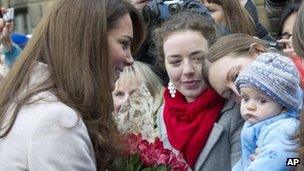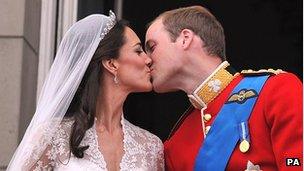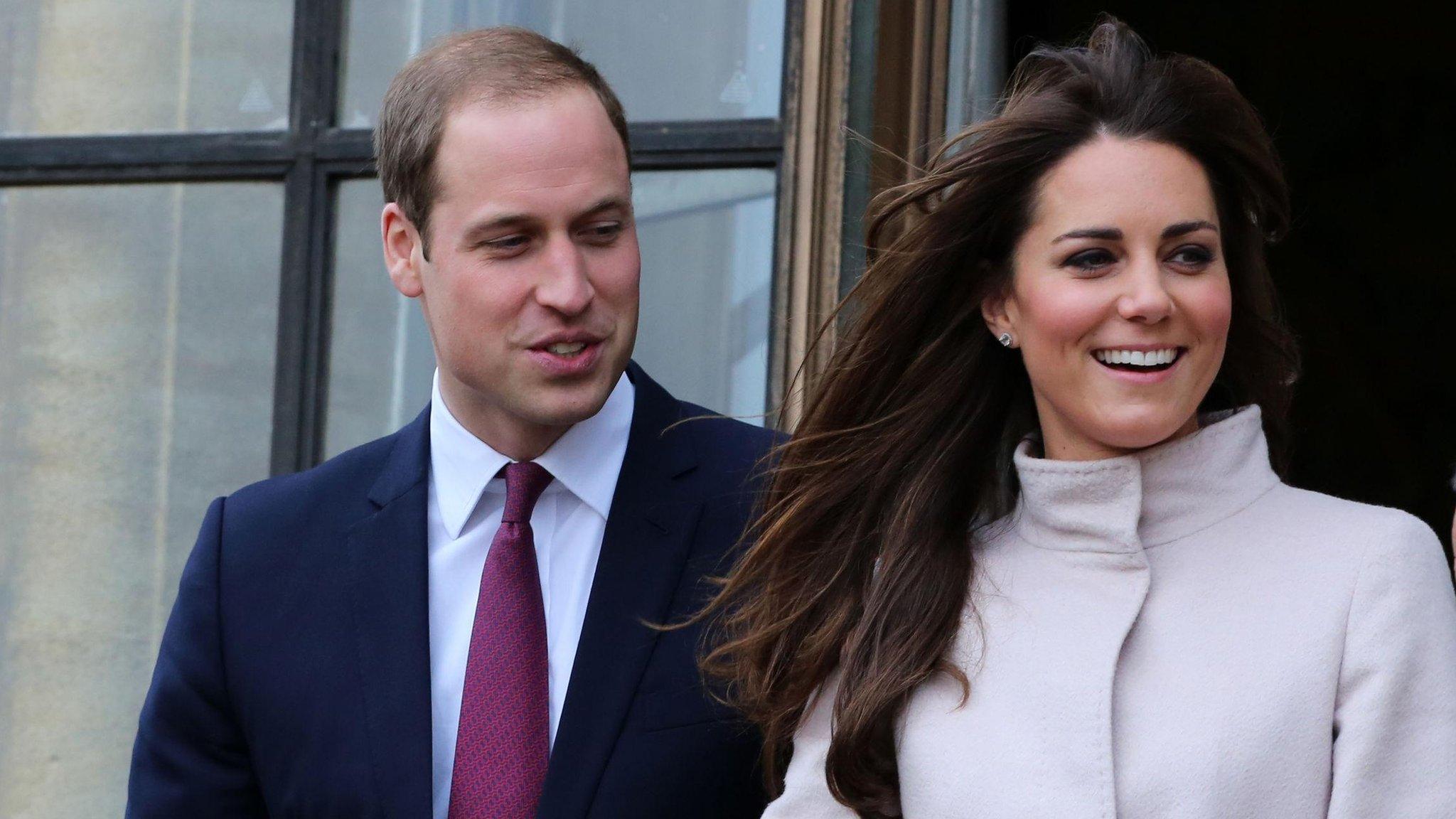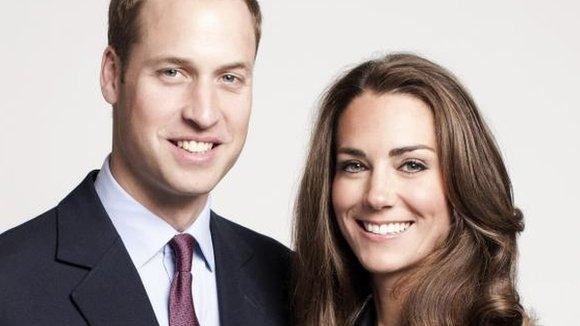Analysis: Royal babies, titles and succession
- Published
- comments

The joy of pregnancy is likely to be tempered by the duchess' acute morning sickness
Theresa May can breathe a sigh of relief. On top of the terrorist threat and police commissioners, she does not have to add next year's royal birth to her in-tray.
Other home secretaries have not been so fortunate.
Back in 1926, Sir William Joynson-Hicks had to be present for the birth of the then Princess Elizabeth while he was also dealing with a bitter dispute in the coal mines.
A tradition, which goes back into the mists of time when it was the custom for government ministers to hang around the private apartments of royalty at significant moments, was abandoned in 1948.
So, the Duchess of Cambridge will be spared the indignity of a politician in the delivery room.
But this pregnancy, rather like the wedding in April 2011, will be far from private.
The couple would have liked to have delayed this afternoon's announcement by several weeks.
The royal baby will be born third in line and in direct succession to the throne, as the BBC's Luisa Baldini reports
Kate is around two months pregnant. But William knew that once his wife was admitted to hospital, the world would have to be let in on their secret.
Before the news went global, the Queen and the Prince of Wales had to be told. The 86-year-old monarch will become a great-grandmother for the third time.
By the middle of next year, her heir will have to get used to a new title to add to the many others he has acquired through the years. Grandad.
When Charles is next seen in public he is bound to be asked for his reaction.
Those around him will be hoping he performs better than when the engagement was announced and William's father told reporters: "Obviously thrilled. They've been practising for long enough".
William and Kate will be delighted. They have talked about having a family from the moment their engagement was announced.
Their joy will obviously be tempered by concern over the morning sickness the duchess is suffering from.
Diana, Princess of Wales, suffered badly from morning sickness when she was pregnant with her elder son.
As well as their personal pleasure, the couple will know they are also living up to public expectations.
It is the great unsaid. As one historian put it, the first "duty and ambition" of someone in Kate's position is to get pregnant.
Their child will be third-in-line to the throne. Prince Harry, who will be an uncle, was told the news in Afghanistan, via e-mail.
His position in the order of succession will move down and his importance to the monarchy will reduce once the birth has taken place.
If the baby is a girl, the government believe she will make royal history.
They intend to change the ancient laws which place males ahead of females in the line of succession.

The couples spoke about their desire to start a family when they announced their engagement
They want the first born, if she's a girl, to one day be queen.
As recently as June, Nick Clegg was insistent the change on gender would apply even if the birth was before legislation was actually passed.
The announcement on Monday will focus minds. The law needs to be changed in Britain and in the 15 other countries where the Queen still reigns.
When a royal is born, the parents do not just have to think about names but also titles. That is when it becomes complicated.
George V decreed in 1917 that the titles "Royal Highness" (HRH) and prince and princess should be restricted to the children of the sovereign; the children of the sovereign's sons; and the eldest son of the eldest son of the Prince of Wales.
Under this formula, a son for William and Kate would become a prince; but there's no provision for a daughter's title.
Despite this however, Buckingham Palace is insistent any girl will become a princess.
The challenge of names and titles is for the future.
For now, the hope in royal circles will be that the future of the monarchy has been secured for another generation.
- Published3 December 2012

- Published4 December 2012
